America’s Renewed Cry For Civil Rights: Racial Profiling While Shopping At New England Based BIG Y Store A Dilemma For People Of Color
Posted by David Adams on March 20th, 2015
There are a growing number of race related social issues currently dominating mainstream media in the United States that stem primarily from police involved killings of unarmed young black men. The brash of unfortunate incidents that resulted in no criminal charges having been lodged against police officials involved in these killings, has garnered tremendous outcry from a growing intolerant American public who see such use of force as excessive and an abuse of authority. Protest have emerged from all across the nation from Missouri to New York, and have some wondering how such incidents of racial divide are beginning to resurface in this country at a more alarming rate since the height of the Civil Rights Era in America.
In all of the protest occurring around our nation, it should be noted that there is a large contingency of white Americans who are as equally outraged at the persistent justification for the killing of unarmed black men by law enforcement officials. While minority support from whites have almost tripled since the 1960’s, there remains an organized systemic practice of racism in just about every aspect of the American culture. Gone are the days of “Old Jim Crow,” whose system of segregation gave birth to “For Whites Only” signs. Sadly though, many of the same racial practices still exist but are now very subtle and covert.
Many people of color are aware of the burden they face by often having employees from local retail establishments follow them around the store while shopping. These kind of practices feed into a stereotype that all black people are thieves. Black youth also give insight into their exposure to being profiled and harassed based solely on race, when describing how merchants require large groups of black kids to come in the store one at a time so that they can be watched/monitored easier, and to prevent the possibility of the youth shoplifting from the establishment. The mindset towards black consumers as potentially being shoplifters still exist, and in some instances more prevalent today in a volume of subcultures within our society.
My own recent experiences at a New England based Big Y Supermarket in Connecticut is a constant reminder of how black consumers are often perceived socially and in many instances, unfairly profiled based on race. My suburban home is seated in the northeast section of the town of Bridgeport, which intersects with neighboring town lines of Trumbull and Stratford Connecticut. For background purposes I share some brief history of these communities. Both communities have storied past of race related incidents and other social strife. The town of Trumbull’s police department was investigated by the United States Department of Justice for racial profiling of black motorist frequenting their town when predominately black schools visited their local high schools for sporting events. Some how it was discovered that the towns’ police issued traffic citations at a disproportionate rate, when schools from predominately black communities were scheduled to play Trumbull High teams.
A few years ago, a black city alderman was arrested by Stratford police, who say the official obstructed justice in the arrest of a black female who was a minor. The alderman claims that he only intervened after witnessing a white police officer punch the black teenager repeatedly in the face. The incident led to protest and a rally at Stratford town hall, and many requesting that the community simply heal from such racial divide. That aside, Stratford’s police department, just like Trumbull’s have a reputation of being highly visible and active, especially when issuing traffic citations to blacks and other minorities.
Despite these towns’ history, many blacks continue to frequent their communities as consumers to shop at their business districts. Big Y supermarkets opened a location in Stratford several years ago. The acquisition was seen as a positive for the neighboring towns, while grocery shopping presented another option that would be closer to home for local residents. It was apparent immediately that management of the establishment had adopted a policy of monitoring black shoppers who frequented the store. There was a lot of following and racial profiling going on that became so noticeable, that many believe complaints to the company’s upper management may have led to an onslaught of black employees being hired to accommodate a very visible minority patronage to the store. Upon Big Y’s grand opening, the establishment didn’t employ a single black person (during normal business hours at least) at the Stratford location.
As time went on many of the store’s employees became familiar with shoppers of all ethnicity, and the following of black shoppers around the store subsided, in my personal opinion. A black store manager was even hired and brought in. I had the occasion of meeting the black manager and developed a report with him regarding product request and other matters related to the shopping experience within the store. Another manager (white) was brought into the store, and I noticed that he began to follow me around the store. Some have asked how did I know that the manager was following me and I had to advised them that I have a law enforcement background, and have actually had to follow people on the job while working for private investigation agencies. In short, my point was that I have practical knowledge of when a person is being followed.
Although the following by the manager was very annoying, I just remembered what my mother use to teach my brothers and I. She taught us that if we were not doing anything that we weren’t supposed to be doing, then we shouldn’t have any concerns if someone followed us, and she would tell us to just ignore them. The very fact that I encountered teachable moments from my childhood regarding incidents of being followed around retail establishments coupled with having experienced similar incidents as an adult, in my mind is just simply incredulous, and depicts the very systemic and long standing culture of racial profiling of black consumers while shopping demonstrates essentially the very premise of this matter that I have been trying to convey in my commentary for this article.
I recall one incident in particular that drew the first complaint from me to store management for being followed, where the subject manager appeared to be tracking my movement in the store. I was looking for an item and had the intuition to simply look up, and when I looked up I saw the manager peeking around the corner of the end of the aisle at me. Confused by what I had just observed, I began to wonder why a store manager would be paying such close attention to me shopping. Keep in mind I had the feeling on several occasions prior to this incident that this particular employee was following me around the store, but I had consistently ignored him like I had been taught from my childhood. To make certain that I wasn’t imagining things, I purposely began to walk across various aisle in the store observing whether the manager continued to follow me, and with no exaggeration I can honestly say with absolute certainty the manager tracked me for several aisles in the store.
When I patronized the store the very next morning I consulted the black manager about it and advised him what had occurred the previous day while I was in the store. After I gave a description to the manager regarding the employee who I believed had followed me, the manager and I concluded that we were discussing the same person who was actually new to the Stratford Big Y store. The black manager and I discussed the following incidents that I believe was occurring just about every time I shopped in the store. I advised him that I have worked in law enforcement/security/loss prevention for over 20 years, and that I also was a former Maryland State Corrections Officer. I also advised him that my significant other was a local college professor and teacher at a City of Bridgeport Public High School, and that many of the young cashiers were in fact her students. My inquiry to this manager was simply for the purpose of establishing for him that we were a well known family in the community, and also working professionals.
Our dialogue about my experiences in the Stratford store sparked a conversation where he shared with me how he and his wife had been racially profiled at an election balloting center recently, and appeared genuinely apologetic about my disturbing shopping experience in one of their stores, because he could empathize with such an apparent racially motivated encounter as a black man himself. When our conversation concluded I was resolved that perhaps the new manager simply needed exposure to the multi racial clientele of the store to become more acclimated with regular customers. So, I let the incident go. However, being followed around the store didn’t end. I began to speak with some of my neighbors who I knew shopped the Stratford Big Y, and heard similar stories about being followed around the store. I believe that my perception of a racially motivated culture did in fact exist in the Stratford grocery store and became fully cemented in my mind, when an experienced female employee who had been employed with Big Y stores for years shared with me that the company appears to have managers who are not familiar working with black or latino people.
Upon hearing her perspective I began seriously evaluating whether or not I wanted to discontinue my patronage of the establishment, but the store’s location was so close to home that we decided our shopping convenience was far more important than the annoyance of some bigot working as a store manager at our local grocer. However, my personal position has always been that a person holding such a leadership role, while potentially manifesting traits of racism, could in fact influence the social dynamic of how the company’s employees and customers alike, interact with each other. He could tell employees to monitor a customer as a potential thief for no other provocation other than the fact that he himself is just simply a racist.
My concern has always been that following a person in any retail business by a company employee isn’t very intelligent, and very well may be a potentially dangerous situation. My personal and practical knowledge of managing retail stores during my post collegiate days, affords me tremendous insight into the particulars of monitoring individuals who may directly impact the store’s shrink through theft. Following a potential shoplifter in the fashion in which I have described in my narrative many times has caused incidents that place employees and customers in harms way. My employment with the Batta Shoe Corporation resulted in me being placed at a volume of stores that were also located in high crime areas. I recall individuals who were known to police as junkies (drug abusers) that shoplift my store on a regular basis, and on one occasion a store associate ran after the shoplifter. The individual turned toward the employee in pursuit of him with a syringe.
Many drug addicts are also known to have HIV or AIDS due to their use of dirty needles or syringes. That incident was a valuable learning experience for me and my entire staff. While store employees should never chase after thieves who shoplift, my personal philosophy has always been to train store employees to keep a lot of distance between potential shoplifters and themselves for their own personal safety. The manager who followed me around the Stratford Big Y is in my opinion an extremely foolish person. Had I been a sick junkie desperate to score merchandise to sell for my drug addiction, his very close surveillance of me could have caused me to act violent in an attempt to exit the store an avoid capture for shoplifting.
Additionally, I question why a manager would physically follow a person around the store. Most corporate or larger retail establishments have in place state of the art security surveillance systems that are in many situations monitored remotely (centralized security consoles for the entire company). It seems to me that a person who has been identified as a potential shoplifter or thief, the manager would contact it’s loss prevention department to alert them of the situation. I mean after all, they are the individuals professionally trained and best to handle those kinds of potentially dangerous incidents. The part of this entire ridiculous ordeal that bothers me the most is the fact that I am a Big Y Discount card holder. My name, address, and telephone number are all in the store’s database somewhere. If I had actually been caught shoplifting, it seems to me that the store management could show the surveillance footage to police, and have them knock on my front door. I don’t know, but maybe the thousands of hours that I have worked monitoring CCTV, PTZ Cameras, and other video surveillance equipment for over two decades doesn’t actually qualify me as a Security expert.
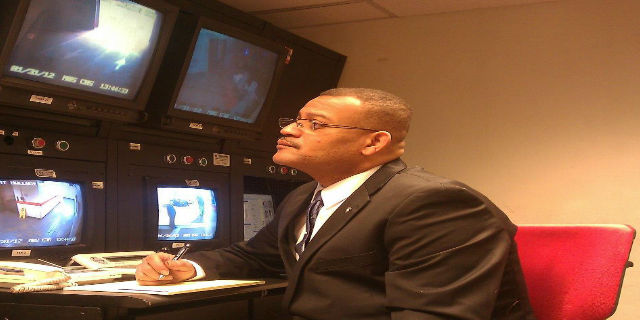
Retail workers have been trained since the beginning of time that the best deterrent to thieves, shoplifters, and other undesirables in a retail setting, is monitoring from a distance to insure public safety, and excellent customer service. When store employees provide customer service to potential shoplifters they typically leave, because the last thing a shoplifter wants is to be noticed or identified. When employees greet customers at the entry point of any business, it establishes that store personnel are aware of your presence. Instead of following people, perhaps walking up to individuals deemed as potential shoplifters and asking if you can help or assist them with finding a product, it may serve dual purposes (actually assisting a customer by providing customer service and alerting bad guys that you are aware of their presence) That way, store employees might actually develop a report with their customers, scare of anyone who isn’t in the store actually making a purchase, and will avoid customers becoming annoyed and freaked out by being followed for no apparent reason by store personnel.
Since none of these tactics were ever used by this manager or any of the other store employees following myself and other black people (that I am aware of) around the store, it creates a dilemma determining why such practices are being utilized by Big Y employees. What do they plan to do if they ever catch somebody shoplifting? Are they going to tackle them in an aisle in the store, or chase them out of the building while knocking some old lady down in the process, who is just trying to purchase groceries? I can’t offer an explanation for why I have experienced this kind of treatment at a grocery store, but it sends a powerful message to me and others who may have been treated similarly by this store manager. I believe the message is that “we are not welcome” as a shopper in that establishment. Perhaps the manager has the mentality that if black customers are harassed enough, then we won’t come back, and I believe that posture is indicative of the social culture of towns like Stratford.
The final straw came yesterday when the subject manager followed me around the store all the way to check out. At the register, he stood at the end where the soda machines and other impulse sale items are usually placed, and pretended to be looking for something or straightening items. Once I completed my purchase, he walked away toward the courtesy counter. When I contacted Big Y’s Customer Service Department, I was told that the matter would be investigated. Later on I was offered the explanation that security surveillance cameras showed the manager was in fact at my register, but he was simply looking for an available register to pay for his lunch. Now, when I was given this rationalization I knew that it was in fact fantasy at best. The customer service manager who spoke with me didn’t have the vantage of viewing the surveillance footage from that register at the time of my purchase, by her own admission, and it was obvious that she was just repeating what she had been told by loss prevention.
At the time of my purchase I was the only person in line and I only had a bottle of coffee creamer and a head of fresh lettuce. If the manager wanted an expedient place to checkout his items for purchase, he could have gotten in line directly behind me. He didn’t, and after I made my purchase he walked away toward the customer service desk. The fact that my intelligence was insulted by a customer service manager, in my mind explains why employees with such racist behavior are even employed at this company. Perhaps the company has a policy of racial practice? To add insult to injury, the customer service manager tried to do clean up work, stating that the manager “was almost flabbergasted by the allegations.” I was requested to contact the manager upon my next visit to the Stratford Big Y, because the manger wanted to buy me a cup of coffee. I was assured that the manager wasn’t like that, and that he was very sorry.
Well, the old politics routine doesn’t work with me. I’ll decline the olive branch, and I don’t need the manager to buy me a cup of coffee, but rather I would prefer that he and his employees simply treat me and other people of color in the same fashion in which he treats his white customers. That would be sufficient enough. To gauge how my efforts of contacting Big Y’s customer service department worked out for me, I went to the Stratford store early this morning, only to have the exact same manager look at me strangely, appear to be engaged in conversation with other employees while looking my way, and follow me again in the store. Although the following this time wasn’t conducted with the same close surveillance, it was more delayed, but the manager and the employee he was talking to, both soon and quickly found their way to the portion of the store where I was. I was there speaking to another black patron about my notification to the store’s customer service about racial profiling, when the employee who the manager was talking to suddenly appeared at a display table close to our location. He didn’t appear to be there for any legitimate purpose (just stood there with his back away from us), other than to make his presence known. I alerted the other customer to him and we both observed him and just laughed in amusement. Then moments later, the manager came from the opposite direction, engaged us with direct visual contact without saying a word, and just walked by (again for the purpose I believe to just make his presence known). We laughed some more.
However, I must remind you that this is the exact same store manager who had allegedly offered the “olive branch” by supposedly wanting to purchase me a cup of coffee. A complaint was made to the company’s customer service department regarding his potential harassment of black consumers shopping his store and what does he do? The very next morning he encounters two black customers, and he doesn’t even offer a simple salutation of “good morning.” He just walks by like we didn’t even exist. I believe this particular manager is in fact a person who has difficulty interacting with minorities. The manner in which I would have handled this situation would be a great suggestion for any retail business. I would have made it a point to deliberately project a more friendly demeanor to all customers, in an effort to eliminate the possibility of anyone being able to charge me with discriminating against them. I filed the complaint of racial profiling and harassment, and the manager had a golden opportunity, to at least change my perception of him, and he blew it. He can be the most racist person in the world on his on time, but when he is representing a business that I and other minorities patronize he has to display absolute tolerance because it’s not personal, it’s a business.
Black people have experienced this kind of treatment as consumers while shopping in businesses all over this country. The Federal Government may have established laws prohibiting this kind of discrimination, but racism in America still exist, and people have learned traits of racial discrimination that has been instilled within them since their earliest stages of human development. These situations tend to resolve themselves when bigots attack or harass the wrong person, and in this instance at least, they have managed to discriminate against a person with the resources and a voice to publicly expose such sickening and racist behavior, on a global stage. My best resolution now is to simply find another grocer. As one relative put it, “it might be inconvenient, but on the other hand the company shouldn’t be permitted to profit from harassing me.” This is my message to people of color who patronize Big Y stores.
The People’s Champion
I’m David Adams
A Self proclaimed geek, Sympathizer for the homeless, Social Change Advocate, Crime Blogger, Promoter of Awareness for Missing and Exploited Children, and a mobile technology enthusiast. A recognized Journalist and Human Interest Writer championing the plight of the masses whom are without a voice of their own.
More Posts - Website
Follow Me:




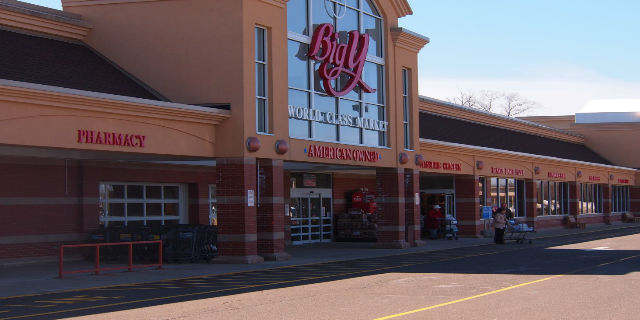
There are a growing number of race related social issues currently dominating mainstream media in the United States that stem primarily from police involved killings of unarmed young black men. The brash of unfortunate incidents that resulted in no criminal charges having been lodged against police officials involved in these killings, has garnered tremendous outcry from a growing intolerant American public who see such use of force as excessive and an abuse of authority. Protest have emerged from all across the nation from Missouri to New York, and have some wondering how such incidents of racial divide are beginning to resurface in this country at a more alarming rate since the height of the Civil Rights Era in America.
In all of the protest occurring around our nation, it should be noted that there is a large contingency of white Americans who are as equally outraged at the persistent justification for the killing of unarmed black men by law enforcement officials. While minority support from whites have almost tripled since the 1960’s, there remains an organized systemic practice of racism in just about every aspect of the American culture. Gone are the days of “Old Jim Crow,” whose system of segregation gave birth to “For Whites Only” signs. Sadly though, many of the same racial practices still exist but are now very subtle and covert.
Many people of color are aware of the burden they face by often having employees from local retail establishments follow them around the store while shopping. These kind of practices feed into a stereotype that all black people are thieves. Black youth also give insight into their exposure to being profiled and harassed based solely on race, when describing how merchants require large groups of black kids to come in the store one at a time so that they can be watched/monitored easier, and to prevent the possibility of the youth shoplifting from the establishment. The mindset towards black consumers as potentially being shoplifters still exist, and in some instances more prevalent today in a volume of subcultures within our society.
My own recent experiences at a New England based Big Y Supermarket in Connecticut is a constant reminder of how black consumers are often perceived socially and in many instances, unfairly profiled based on race. My suburban home is seated in the northeast section of the town of Bridgeport, which intersects with neighboring town lines of Trumbull and Stratford Connecticut. For background purposes I share some brief history of these communities. Both communities have storied past of race related incidents and other social strife. The town of Trumbull’s police department was investigated by the United States Department of Justice for racial profiling of black motorist frequenting their town when predominately black schools visited their local high schools for sporting events. Some how it was discovered that the towns’ police issued traffic citations at a disproportionate rate, when schools from predominately black communities were scheduled to play Trumbull High teams.
A few years ago, a black city alderman was arrested by Stratford police, who say the official obstructed justice in the arrest of a black female who was a minor. The alderman claims that he only intervened after witnessing a white police officer punch the black teenager repeatedly in the face. The incident led to protest and a rally at Stratford town hall, and many requesting that the community simply heal from such racial divide. That aside, Stratford’s police department, just like Trumbull’s have a reputation of being highly visible and active, especially when issuing traffic citations to blacks and other minorities.
Despite these towns’ history, many blacks continue to frequent their communities as consumers to shop at their business districts. Big Y supermarkets opened a location in Stratford several years ago. The acquisition was seen as a positive for the neighboring towns, while grocery shopping presented another option that would be closer to home for local residents. It was apparent immediately that management of the establishment had adopted a policy of monitoring black shoppers who frequented the store. There was a lot of following and racial profiling going on that became so noticeable, that many believe complaints to the company’s upper management may have led to an onslaught of black employees being hired to accommodate a very visible minority patronage to the store. Upon Big Y’s grand opening, the establishment didn’t employ a single black person (during normal business hours at least) at the Stratford location.
As time went on many of the store’s employees became familiar with shoppers of all ethnicity, and the following of black shoppers around the store subsided, in my personal opinion. A black store manager was even hired and brought in. I had the occasion of meeting the black manager and developed a report with him regarding product request and other matters related to the shopping experience within the store. Another manager (white) was brought into the store, and I noticed that he began to follow me around the store. Some have asked how did I know that the manager was following me and I had to advised them that I have a law enforcement background, and have actually had to follow people on the job while working for private investigation agencies. In short, my point was that I have practical knowledge of when a person is being followed.
Although the following by the manager was very annoying, I just remembered what my mother use to teach my brothers and I. She taught us that if we were not doing anything that we weren’t supposed to be doing, then we shouldn’t have any concerns if someone followed us, and she would tell us to just ignore them. The very fact that I encountered teachable moments from my childhood regarding incidents of being followed around retail establishments coupled with having experienced similar incidents as an adult, in my mind is just simply incredulous, and depicts the very systemic and long standing culture of racial profiling of black consumers while shopping demonstrates essentially the very premise of this matter that I have been trying to convey in my commentary for this article.
I recall one incident in particular that drew the first complaint from me to store management for being followed, where the subject manager appeared to be tracking my movement in the store. I was looking for an item and had the intuition to simply look up, and when I looked up I saw the manager peeking around the corner of the end of the aisle at me. Confused by what I had just observed, I began to wonder why a store manager would be paying such close attention to me shopping. Keep in mind I had the feeling on several occasions prior to this incident that this particular employee was following me around the store, but I had consistently ignored him like I had been taught from my childhood. To make certain that I wasn’t imagining things, I purposely began to walk across various aisle in the store observing whether the manager continued to follow me, and with no exaggeration I can honestly say with absolute certainty the manager tracked me for several aisles in the store.
When I patronized the store the very next morning I consulted the black manager about it and advised him what had occurred the previous day while I was in the store. After I gave a description to the manager regarding the employee who I believed had followed me, the manager and I concluded that we were discussing the same person who was actually new to the Stratford Big Y store. The black manager and I discussed the following incidents that I believe was occurring just about every time I shopped in the store. I advised him that I have worked in law enforcement/security/loss prevention for over 20 years, and that I also was a former Maryland State Corrections Officer. I also advised him that my significant other was a local college professor and teacher at a City of Bridgeport Public High School, and that many of the young cashiers were in fact her students. My inquiry to this manager was simply for the purpose of establishing for him that we were a well known family in the community, and also working professionals.
Our dialogue about my experiences in the Stratford store sparked a conversation where he shared with me how he and his wife had been racially profiled at an election balloting center recently, and appeared genuinely apologetic about my disturbing shopping experience in one of their stores, because he could empathize with such an apparent racially motivated encounter as a black man himself. When our conversation concluded I was resolved that perhaps the new manager simply needed exposure to the multi racial clientele of the store to become more acclimated with regular customers. So, I let the incident go. However, being followed around the store didn’t end. I began to speak with some of my neighbors who I knew shopped the Stratford Big Y, and heard similar stories about being followed around the store. I believe that my perception of a racially motivated culture did in fact exist in the Stratford grocery store and became fully cemented in my mind, when an experienced female employee who had been employed with Big Y stores for years shared with me that the company appears to have managers who are not familiar working with black or latino people.
Upon hearing her perspective I began seriously evaluating whether or not I wanted to discontinue my patronage of the establishment, but the store’s location was so close to home that we decided our shopping convenience was far more important than the annoyance of some bigot working as a store manager at our local grocer. However, my personal position has always been that a person holding such a leadership role, while potentially manifesting traits of racism, could in fact influence the social dynamic of how the company’s employees and customers alike, interact with each other. He could tell employees to monitor a customer as a potential thief for no other provocation other than the fact that he himself is just simply a racist.
My concern has always been that following a person in any retail business by a company employee isn’t very intelligent, and very well may be a potentially dangerous situation. My personal and practical knowledge of managing retail stores during my post collegiate days, affords me tremendous insight into the particulars of monitoring individuals who may directly impact the store’s shrink through theft. Following a potential shoplifter in the fashion in which I have described in my narrative many times has caused incidents that place employees and customers in harms way. My employment with the Batta Shoe Corporation resulted in me being placed at a volume of stores that were also located in high crime areas. I recall individuals who were known to police as junkies (drug abusers) that shoplift my store on a regular basis, and on one occasion a store associate ran after the shoplifter. The individual turned toward the employee in pursuit of him with a syringe.
Many drug addicts are also known to have HIV or AIDS due to their use of dirty needles or syringes. That incident was a valuable learning experience for me and my entire staff. While store employees should never chase after thieves who shoplift, my personal philosophy has always been to train store employees to keep a lot of distance between potential shoplifters and themselves for their own personal safety. The manager who followed me around the Stratford Big Y is in my opinion an extremely foolish person. Had I been a sick junkie desperate to score merchandise to sell for my drug addiction, his very close surveillance of me could have caused me to act violent in an attempt to exit the store an avoid capture for shoplifting.
Additionally, I question why a manager would physically follow a person around the store. Most corporate or larger retail establishments have in place state of the art security surveillance systems that are in many situations monitored remotely (centralized security consoles for the entire company). It seems to me that a person who has been identified as a potential shoplifter or thief, the manager would contact it’s loss prevention department to alert them of the situation. I mean after all, they are the individuals professionally trained and best to handle those kinds of potentially dangerous incidents. The part of this entire ridiculous ordeal that bothers me the most is the fact that I am a Big Y Discount card holder. My name, address, and telephone number are all in the store’s database somewhere. If I had actually been caught shoplifting, it seems to me that the store management could show the surveillance footage to police, and have them knock on my front door. I don’t know, but maybe the thousands of hours that I have worked monitoring CCTV, PTZ Cameras, and other video surveillance equipment for over two decades doesn’t actually qualify me as a Security expert.

Retail workers have been trained since the beginning of time that the best deterrent to thieves, shoplifters, and other undesirables in a retail setting, is monitoring from a distance to insure public safety, and excellent customer service. When store employees provide customer service to potential shoplifters they typically leave, because the last thing a shoplifter wants is to be noticed or identified. When employees greet customers at the entry point of any business, it establishes that store personnel are aware of your presence. Instead of following people, perhaps walking up to individuals deemed as potential shoplifters and asking if you can help or assist them with finding a product, it may serve dual purposes (actually assisting a customer by providing customer service and alerting bad guys that you are aware of their presence) That way, store employees might actually develop a report with their customers, scare of anyone who isn’t in the store actually making a purchase, and will avoid customers becoming annoyed and freaked out by being followed for no apparent reason by store personnel.
Since none of these tactics were ever used by this manager or any of the other store employees following myself and other black people (that I am aware of) around the store, it creates a dilemma determining why such practices are being utilized by Big Y employees. What do they plan to do if they ever catch somebody shoplifting? Are they going to tackle them in an aisle in the store, or chase them out of the building while knocking some old lady down in the process, who is just trying to purchase groceries? I can’t offer an explanation for why I have experienced this kind of treatment at a grocery store, but it sends a powerful message to me and others who may have been treated similarly by this store manager. I believe the message is that “we are not welcome” as a shopper in that establishment. Perhaps the manager has the mentality that if black customers are harassed enough, then we won’t come back, and I believe that posture is indicative of the social culture of towns like Stratford.
The final straw came yesterday when the subject manager followed me around the store all the way to check out. At the register, he stood at the end where the soda machines and other impulse sale items are usually placed, and pretended to be looking for something or straightening items. Once I completed my purchase, he walked away toward the courtesy counter. When I contacted Big Y’s Customer Service Department, I was told that the matter would be investigated. Later on I was offered the explanation that security surveillance cameras showed the manager was in fact at my register, but he was simply looking for an available register to pay for his lunch. Now, when I was given this rationalization I knew that it was in fact fantasy at best. The customer service manager who spoke with me didn’t have the vantage of viewing the surveillance footage from that register at the time of my purchase, by her own admission, and it was obvious that she was just repeating what she had been told by loss prevention.
At the time of my purchase I was the only person in line and I only had a bottle of coffee creamer and a head of fresh lettuce. If the manager wanted an expedient place to checkout his items for purchase, he could have gotten in line directly behind me. He didn’t, and after I made my purchase he walked away toward the customer service desk. The fact that my intelligence was insulted by a customer service manager, in my mind explains why employees with such racist behavior are even employed at this company. Perhaps the company has a policy of racial practice? To add insult to injury, the customer service manager tried to do clean up work, stating that the manager “was almost flabbergasted by the allegations.” I was requested to contact the manager upon my next visit to the Stratford Big Y, because the manger wanted to buy me a cup of coffee. I was assured that the manager wasn’t like that, and that he was very sorry.
Well, the old politics routine doesn’t work with me. I’ll decline the olive branch, and I don’t need the manager to buy me a cup of coffee, but rather I would prefer that he and his employees simply treat me and other people of color in the same fashion in which he treats his white customers. That would be sufficient enough. To gauge how my efforts of contacting Big Y’s customer service department worked out for me, I went to the Stratford store early this morning, only to have the exact same manager look at me strangely, appear to be engaged in conversation with other employees while looking my way, and follow me again in the store. Although the following this time wasn’t conducted with the same close surveillance, it was more delayed, but the manager and the employee he was talking to, both soon and quickly found their way to the portion of the store where I was. I was there speaking to another black patron about my notification to the store’s customer service about racial profiling, when the employee who the manager was talking to suddenly appeared at a display table close to our location. He didn’t appear to be there for any legitimate purpose (just stood there with his back away from us), other than to make his presence known. I alerted the other customer to him and we both observed him and just laughed in amusement. Then moments later, the manager came from the opposite direction, engaged us with direct visual contact without saying a word, and just walked by (again for the purpose I believe to just make his presence known). We laughed some more.
However, I must remind you that this is the exact same store manager who had allegedly offered the “olive branch” by supposedly wanting to purchase me a cup of coffee. A complaint was made to the company’s customer service department regarding his potential harassment of black consumers shopping his store and what does he do? The very next morning he encounters two black customers, and he doesn’t even offer a simple salutation of “good morning.” He just walks by like we didn’t even exist. I believe this particular manager is in fact a person who has difficulty interacting with minorities. The manner in which I would have handled this situation would be a great suggestion for any retail business. I would have made it a point to deliberately project a more friendly demeanor to all customers, in an effort to eliminate the possibility of anyone being able to charge me with discriminating against them. I filed the complaint of racial profiling and harassment, and the manager had a golden opportunity, to at least change my perception of him, and he blew it. He can be the most racist person in the world on his on time, but when he is representing a business that I and other minorities patronize he has to display absolute tolerance because it’s not personal, it’s a business.
Black people have experienced this kind of treatment as consumers while shopping in businesses all over this country. The Federal Government may have established laws prohibiting this kind of discrimination, but racism in America still exist, and people have learned traits of racial discrimination that has been instilled within them since their earliest stages of human development. These situations tend to resolve themselves when bigots attack or harass the wrong person, and in this instance at least, they have managed to discriminate against a person with the resources and a voice to publicly expose such sickening and racist behavior, on a global stage. My best resolution now is to simply find another grocer. As one relative put it, “it might be inconvenient, but on the other hand the company shouldn’t be permitted to profit from harassing me.” This is my message to people of color who patronize Big Y stores.
The People’s Champion
I’m David Adams
A Self proclaimed geek, Sympathizer for the homeless, Social Change Advocate, Crime Blogger, Promoter of Awareness for Missing and Exploited Children, and a mobile technology enthusiast. A recognized Journalist and Human Interest Writer championing the plight of the masses whom are without a voice of their own.
More Posts - Website
Follow Me:




You can
leave a response, or
trackback from your own site.

 RSS Feed
RSS Feed Twitter
Twitter





 Posted in
Posted in 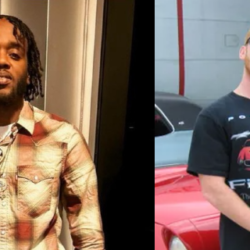
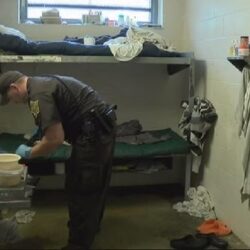
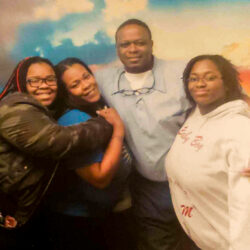
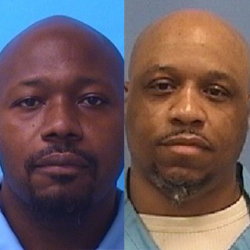
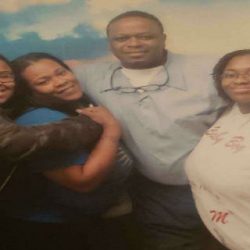

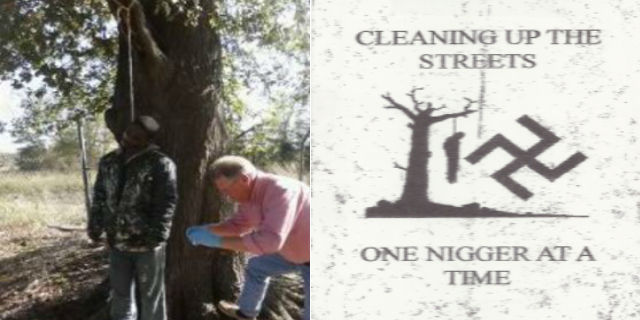
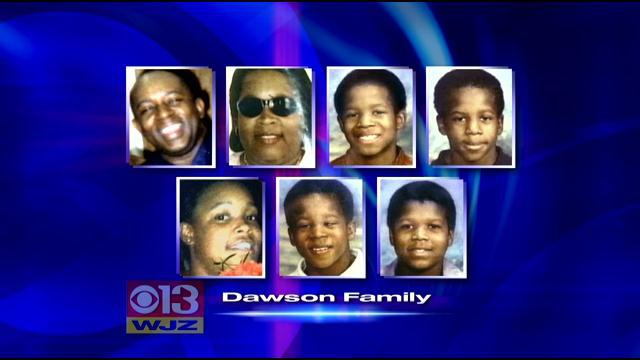
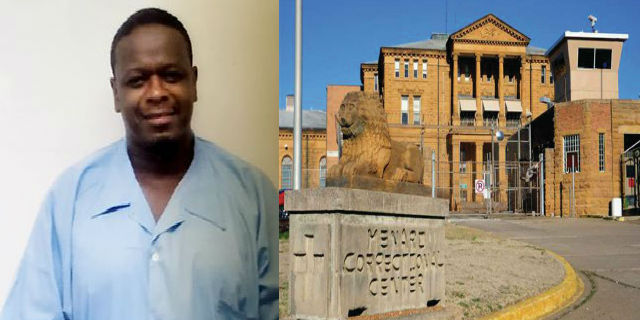
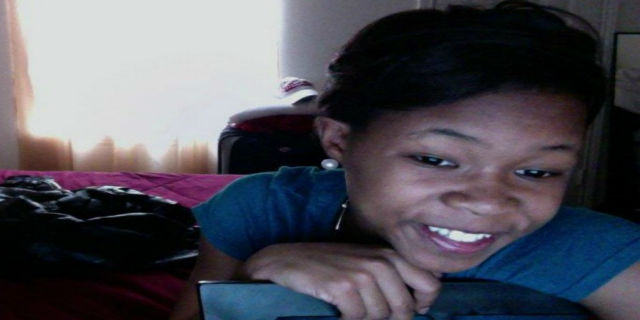



Mr Adams
That was a very powerful article that illustrates the systemic racism that still exists in our country today. Though the high profile cases you’ve mentioned may spark our outrage, the more mundane, day to day experiences like yours often go unaddressed. As a white man in America, I may share in the outrage and sympathize, but I know I’ll never have a true understanding of what it is like to be a black man in this country.
Throughout my entire life I’ve tried to gain a better understanding of race relations in America. My shelves are lined with books by everyone from Dr. King to Eldridge Cleaver, from Cornell West to Louis Farrakhan. As my son was growing up I made sure that he read the “Autobiography of Malcolm X “and Mandela’s “Long Walk to Freedom” ( I’m proud to say that he’s now grown and teaching in Harlem!) The different perspectives and experiences of these men have helped me understand things on an intellectual level but they’ve also made it clear that I’ll never really “get it”
I manage a grocery store. If I were aware of an employee following a customer around the store because of their race or ethnicity, I would do my best to convince that employee that they are in the wrong line of work. As a manager, I don’t follow people around the store. That’s clearly a job much better suited to security professionals. I do, however, make upwards of 100 laps around the store every day. I’m looking at stock levels, product quality, dust on a shelf that needs to be addressed, customer service levels, and countless other things. Sometimes I’m just staring at an empty spot on the floor planning a display that will occupy the space in the days or weeks ahead.
My store services over 15,000 customers each week. I try to acknowledge every one of them as I pass them in the aisles but I’m sure there are times when I’m too caught up in the details that I might appear distant. I try not to let it happen but I know it does.
The truth is, I am the manager that this article is based on and I still wish we could have a cup of coffee. The offer was never meant to be an “olive branch” or an effort to pacify you. It wasn’t really meant for you at all but for me. It bothered me that there was someone out there who saw me as the type of person who would follow somebody around a grocery store because of their skin color and I wanted to talk to you about it. I feel like I’ve been mischaracterized based on my appearance (white guy in a suit = racist bigot) and I can’t say that I like the way it feels. I’d be willing to bet that you understand exactly what I mean.
A conversation between two men in a grocery store over coffee obviously won’t do much to heal 500 years of racial wounds but at least it’s something. The coffee offer still stands if you’re ever interested.
Thanks,
Joe